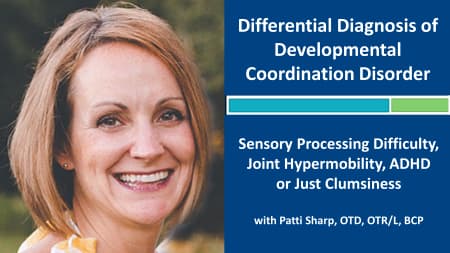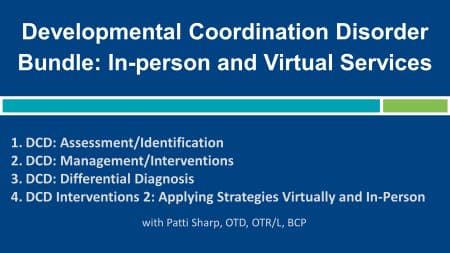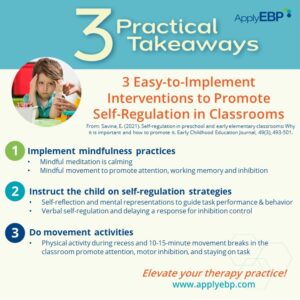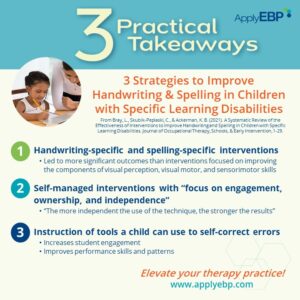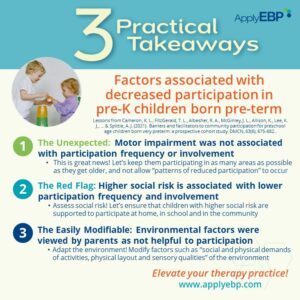3 Practical Takeaways
Identifying Developmental Coordination Disorder (DCD): How much do stakeholders know?
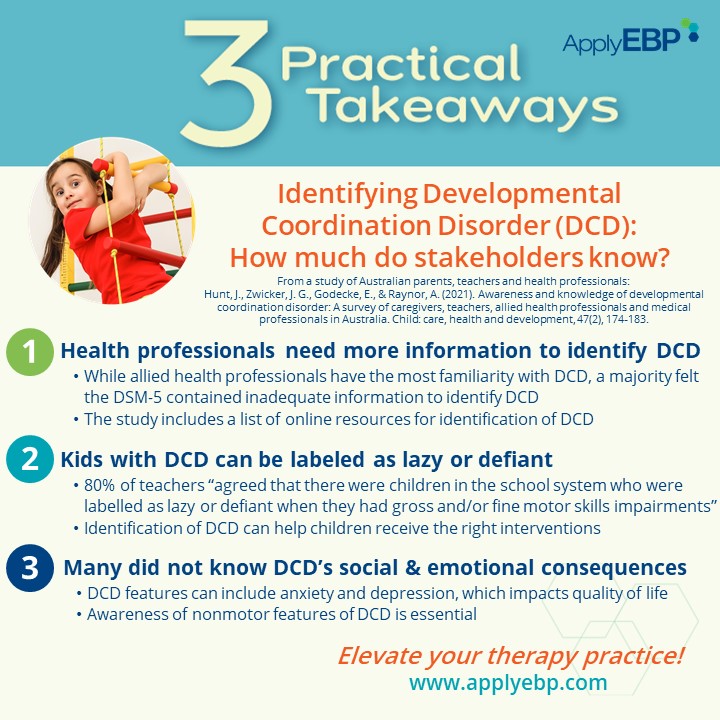
How much do therapists, doctors, teachers and caregivers know about Developmental Coordination Disorder (DCD)?
Here is an interesting study where Hunt et al (2021) reported survey results from 494 stakeholders. While the study is from Australia, there are many lessons to go around no matter where you are. It was hard to pick just #3PracticalTakeaways, so we chose 3 that hopefully will get more attention to the need of identifying whether a child has DCD or another health condition. And, yes, there are tools that can help with increasing knowledge about DCD and how to identify them. Which is another reason why we like this study…it includes lists of online resources to help health professionals in identifying children who have/probably have DCD, and online resources that you can share with teachers and parent/caregivers.
- You can also learn more about DCD on this SeekFreaks post: Just Clumsy? Or Is It DCD?…and Why It Matters by Erin Iverson, PT, DPT, ABPTS-Certified PCS
- And here’s our favorite CanChild favorite for teachers: MATCH Flyers from K-Adolescents
Read the article, use the list of resources and add your own takeaways in the comments section below.
Click below to download,
print and share the infographics
Continue to Elevate Your Practice with Our...
Featured School
Symposium
Featured Live
Workshop
Featured On-Demand
Webinar
DCD - Differential Diagnosis
Featured Webinar
Bundle
DCD Bundle: In-person & Virtual Services
Reference:
Hunt, J., Zwicker, J. G., Godecke, E., & Raynor, A. (2021). Awareness and knowledge of developmental coordination disorder: A survey of caregivers, teachers, allied health professionals and medical professionals in Australia. Child: care, health and development, 47(2), 174-183.

